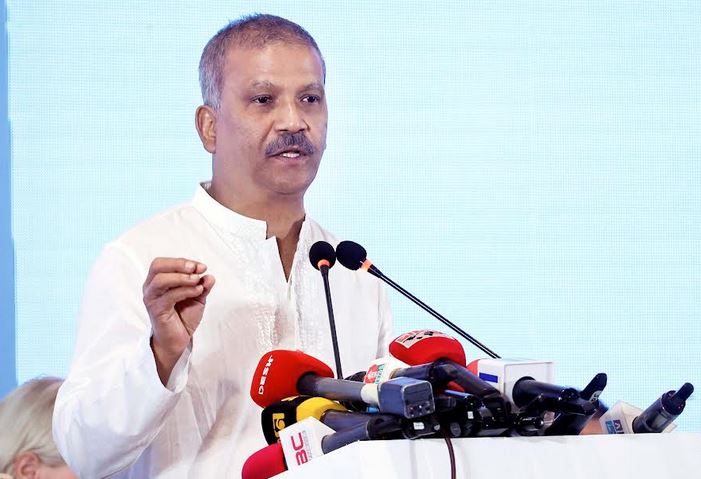News Flash

DHAKA, Oct 11, 2025 (BSS) - Law, Justice and Parliamentary Affairs Adviser Dr Asif Nazrul today said the advisers of the interim government do not need a 'safe exit', despite ongoing public discourse on the issue.
"As you know, there is much talk these days about a 'safe exit'. But we, the advisers, are absolutely certain that none of us require any such exit," he said, adding, "Rather, it is the people of this country who, as a nation, need a safe exit from the destructive state structure left behind by the previous fascist regime."
Asif Nazrul made the remarks while speaking at a national consultation on the draft National Human Rights Commission Ordinance, 2025, held at the InterContinental Hotel ballroom in the capital.
He recalled the past 15 years of misrule, enforced disappearances, extrajudicial killings, and the looting of public funds from banks, terming it as a "fearful and self-destructive state structure" from which the nation requires a safe exit.
Referring to judicial independence, he said the Constitution of 1972 envisioned that the President would appoint judges independently, free from political influence. "But everyone knows that the President has never been able to exercise that independence. In practice, judicial appointments have always reflected the will of the Prime Minister," he added.
The Law Adviser said, "We have even had Chief Justices who have led human rights violations and played a key role in undermining Bangladesh's electoral system and democracy. They have ignored enforced disappearances and extrajudicial killings witnessed firsthand. Those judges who actively contributed to human rights violations have gone unpunished."
Mentioning that some of these individuals still remain in the judiciary, he said, "We have made some progress on institutional reform, but have not completed it. The responsibility now rests with the next elected government."
Asif Nazrul said, "We may be passing good laws, but enacting good laws alone does not mean the entire country will be transformed."
He added, "We have seen that even when excellent laws are made, the institutions for which they are intended often fail to function. While we have no history of failure in making law, our failures in institution-building have been limitless."
Noting that good institution-building as a continuous process, he said, "I hope that through this law, we will be able to establish a truly strong Human Rights Commission."
Stating that there is a need to strengthen some institutions as a way out of this terrible state structure, the adviser said, "The most important of these are the High Court and the Parliamentary Committee. And along with this, we need to make some other accountable institutions stand strong, the most notable of which is the Human Rights Commission."
He added, "And if we fail to do this, any person in the country can be a victim of serious human rights violations at any time."
On strengthening the National Human Rights Commission, Asif Nazrul said, "This is not only the responsibility of the government or any single individual, but also of all of us."
He expressed hope that the amended law would enhance the Commission's efficiency and further strengthen its independence.
Housing and Public Works Adviser Adilur Rahman Khan, Environment, Forest and Climate Change Adviser Syeda Rizwana Hasan, Attorney General Md. Asaduzzaman,
Legislative and Parliamentary Affairs Division Secretary Dr. Hafiz Ahmed Chowdhury, Swiss Ambassador Reto Siegfried Renggli, Deputy Head of Mission of the Danish Embassy Anders B. Carlsen, UNDP Resident Representative Stefan Liller, among others, also spoke.
Romana Schweiger, Law, Justice and Security Adviser, UNDP Bangladesh, moderated the event, also attended by senior officials of the ministry and the national human rights commission, teachers and students from various universities in the country and abroad, representatives of various human rights organizations and institutions, and lawyers from the Supreme Court of Bangladesh.